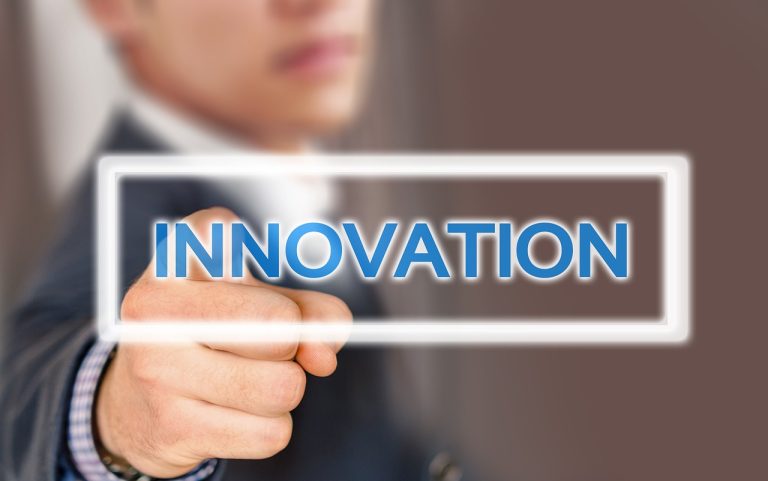
The tech world is buzzing with excitement and disbelief as a recent announcement promises to turn everything we know on its head. Imagine waking up to news that could redefine our relationship with technology—sounds dramatic, right? But that’s exactly what is happening. This groundbreaking development is not just a minor update; it’s a seismic shift that could alter the landscape of the industry forever.
What if I told you that this news could change how we interact with our devices, our data, and even our daily lives? This isn’t just about new gadgets or software updates; it’s about a fundamental transformation that could impact everything from consumer behavior to corporate strategies. Industry leaders are already scrambling to comprehend the implications, and you can bet that analysts are working overtime to predict the fallout.
As we dive deeper into this topic, we’ll explore the significance of this announcement and the initial reactions from the biggest names in tech. Are they excited, skeptical, or downright terrified? The answers could reveal the underlying currents of change sweeping through the industry.
Stay tuned as we unpack the layers of this shocking news and what it means for the future. Whether you’re a tech enthusiast, a startup founder, or just someone who uses technology every day, this is news you won’t want to ignore. The ripples of this announcement are just beginning to spread, and the full impact is yet to be seen.
The Game-Changing Announcement
Recently, the tech world was rocked by a groundbreaking announcement that has left industry insiders buzzing with excitement and uncertainty. Imagine a scenario where the very fabric of technology as we know it is about to change—this is precisely what the latest news promises. A major tech giant unveiled a revolutionary product that integrates artificial intelligence with everyday devices, making them smarter and more intuitive than ever before. This is not just an incremental upgrade; it’s akin to the leap from flip phones to smartphones, and it has the potential to reshape our daily lives.
Industry leaders are already weighing in, with some expressing cautious optimism while others voice skepticism. The announcement has sparked a flurry of discussions about its implications for both consumers and businesses. For instance, tech analysts are predicting that this innovation could lead to an explosion of new startups aimed at leveraging this technology, creating a ripple effect across various sectors. Will this be the dawn of a new era in tech? Only time will tell, but the initial reactions suggest that we are on the brink of something monumental.
To give you a clearer picture, let’s break down the key elements of this announcement:
- Integration with AI: The product promises seamless operation with artificial intelligence, enhancing user experience.
- Accessibility: Designed to be user-friendly, it caters to both tech enthusiasts and everyday users.
- Market Disruption: Analysts predict a shake-up in the existing market dynamics, forcing competitors to rethink their strategies.
In summary, this announcement is more than just a new gadget; it represents a shift in the tech landscape that could redefine how we interact with technology. As we delve deeper into the industry reactions and predictions, one thing is clear: the tech world is on the edge of its seat, eagerly anticipating what comes next.
Industry Reactions and Predictions
The tech industry is buzzing with excitement and apprehension following the recent announcement that has sent shockwaves through the market. Industry leaders are scrambling to analyze the implications of this groundbreaking news, and their reactions vary dramatically. Some experts are heralding it as a revolutionary breakthrough, while others express caution, fearing potential disruptions to established norms.
Analysts predict that this announcement could redefine market dynamics in several key areas. For instance, companies that swiftly adapt to the changes are likely to gain a significant competitive advantage. A recent survey conducted among tech executives revealed that 70% believe this news will lead to a shift in consumer preferences, pushing businesses to innovate faster than ever before. The data is illuminating:
| Company Type | Predicted Impact | Adaptation Strategy |
|---|---|---|
| Startups | Opportunity for rapid growth | Embrace agile methodologies |
| Established Corporations | Need for strategic overhaul | Invest in R&D |
| Investors | Increased market volatility | Diversify portfolios |
Furthermore, the reactions from different sectors within the industry highlight a spectrum of preparedness. For example, tech giants are already recalibrating their strategies, while smaller firms are contemplating partnerships to leverage the new landscape. This dynamic shift opens the door to a myriad of opportunities but also presents daunting challenges that could reshape the competitive landscape.
As we look ahead, it’s clear that the tech industry is on the cusp of a seismic shift. The question remains: will companies rise to the occasion, or will they be left behind in the dust of innovation? Only time will tell, but one thing is certain—this news has ignited a fire of change that cannot be ignored.
Expert Opinions
As the dust settles from the recent groundbreaking announcement, industry experts are weighing in with their thoughts, and the consensus is clear: this news is a potential game-changer. Dr. Emily Carter, a renowned tech analyst, believes that this development could redefine how we approach technology. “We’re on the brink of a revolution,” she states, emphasizing that the implications extend far beyond the immediate shockwaves felt within the industry.
Many experts are particularly excited about the opportunities this news presents for innovation. Mark Thompson, a leading venture capitalist, noted that “startups are poised to thrive in this new environment.” He predicts a surge in funding for companies that can adapt quickly, highlighting that agility will be key. However, he cautions that not all will succeed: “Those who cling to outdated practices may find themselves left in the dust.”
Furthermore, Dr. Sarah Lee, a technology futurist, suggests that the announcement will likely spur a wave of collaboration across the tech ecosystem. “We might see unlikely partnerships forming as companies strive to leverage each other’s strengths,” she explains. This collaborative spirit could lead to unprecedented advancements, but it also raises questions about competition and market share.
In summary, the expert opinions surrounding this announcement are filled with a mix of excitement and caution. While the potential for innovation is immense, the path forward will require strategic thinking and adaptability. As we navigate this new landscape, it will be fascinating to observe how these insights translate into real-world applications and shifts in the industry.
Impact on Startups
The recent tech announcement has sent ripples through the startup ecosystem, creating a whirlwind of both opportunities and challenges. Startups, often seen as the agile innovators of the tech world, are now faced with a unique chance to pivot their strategies and capitalize on the shifting landscape. Imagine being a small boat navigating through a storm; while it may be daunting, it also presents a chance to harness the winds of change to sail towards new horizons.
On one hand, the announcement has opened doors for startups to innovate and differentiate themselves in a crowded market. For instance, emerging technologies that were once deemed too risky or niche may now find a ready audience, as both consumers and investors are eager to explore the new possibilities. Startups that can quickly adapt and align their offerings with the latest trends will likely attract attention and funding. However, the rapid pace of change also brings significant hurdles. Startups must now contend with increased competition from established players who are scrambling to redefine their strategies in light of the news.
Moreover, the financial implications cannot be overlooked. Startups often operate on tight budgets, and the need to invest in new technologies or pivot their business models can strain their resources. To illustrate this, consider the following table:
| Aspect | Opportunity | Challenge |
|---|---|---|
| Investment | Increased interest from investors | Higher costs for innovation |
| Market Reach | Access to new customer segments | Intense competition from larger firms |
| Technology | Ability to leverage cutting-edge tools | Need for rapid adaptation |
In conclusion, while the announcement presents a double-edged sword for startups, those who are nimble and proactive in their approach stand to gain significantly. The key lies in their ability to not just react, but to anticipate and shape the future of their industries. Will your startup rise to the occasion and seize this moment of transformation?
Established Corporations’ Strategies
In the wake of this groundbreaking announcement, established corporations are scrambling to reassess their strategies. The shockwave sent through the tech industry is prompting these giants to rethink their approaches to innovation, competition, and consumer engagement. As they navigate this new landscape, companies are focusing on several key areas to maintain their competitive edge.
Firstly, many corporations are likely to increase their investment in research and development. This move is crucial for staying ahead of the curve, as the recent news hints at a shift in consumer expectations and technological capabilities. By prioritizing R&D, these companies aim to not only adapt to changes but also to lead the charge in innovation. For instance, tech behemoths like Apple and Google are already ramping up their efforts in artificial intelligence and machine learning, recognizing that these technologies will play a pivotal role in shaping the future.
Moreover, corporations are also focusing on strategic partnerships. Collaborating with startups and other tech firms can provide access to fresh ideas and cutting-edge technology. This synergy can be a game-changer, enabling established players to leverage the agility of smaller companies while also sharing resources. For example, a recent partnership between a major software company and a promising AI startup illustrates how established firms are keen on tapping into new talent and innovation.
Additionally, corporations are reevaluating their customer engagement strategies. With consumers becoming more tech-savvy and demanding, companies are investing in personalized experiences and enhanced customer service. This shift is not just about keeping up; it’s about creating loyalty in an era where consumers have more choices than ever. As a result, we may see an increase in the use of data analytics to understand consumer behavior better and tailor offerings accordingly.
In summary, as established corporations respond to this shocking development, their strategies will likely revolve around innovation, collaboration, and customer-centricity. The race is on, and those who adapt quickly will not only survive but thrive in this new tech landscape.
Consumer Reactions
The recent tech announcement has sent shockwaves through the consumer landscape, igniting a whirlwind of reactions that are as varied as they are passionate. Imagine waking up to find that your favorite gadget is about to undergo a radical transformation; it’s thrilling yet daunting. Many consumers are expressing a mix of excitement and skepticism. Will this new technology truly enhance our lives, or will it complicate them further? This question looms large in the minds of tech enthusiasts and everyday users alike.
Social media platforms have become a buzzing hive of opinions, with users sharing their thoughts on the implications of this groundbreaking news. Some consumers are embracing the change, eager to explore the new possibilities that lie ahead. They see this as an opportunity to upgrade their tech experience, reveling in the idea of smarter devices and enhanced functionalities. On the other hand, there are those who voice concerns about privacy and the learning curve associated with new technology. They feel like they’re being thrust into the deep end without a life preserver.
To better understand these sentiments, we can categorize consumer reactions into a few key themes:
- Optimism: Many are excited about the potential benefits, such as increased efficiency and convenience.
- Skepticism: A significant portion of consumers worry about how these changes will affect their daily lives.
- Curiosity: Users are eager to learn more about how the technology will work and what it means for them.
This blend of reactions illustrates the complex relationship consumers have with technology. As they navigate this new terrain, their expectations are shifting. They are no longer just passive recipients of tech advancements; they want to be actively involved in how these changes unfold. The power has shifted into their hands, and they are ready to shape the future of technology in ways we can only begin to imagine.
Future Trends to Watch
As the tech industry reels from the recent groundbreaking announcement, the landscape is poised for some significant shifts. One of the most exciting trends to watch is the rapid evolution of artificial intelligence (AI). With advancements pushing the boundaries of what’s possible, AI is set to become even more integrated into our daily lives. Imagine a world where your devices not only respond to commands but anticipate your needs—this is no longer a distant dream!
Moreover, we can expect a surge in remote work technologies. As companies adapt to a new normal, tools that enhance collaboration and productivity from afar will become essential. This shift will not only change how we work but also redefine workplace culture itself. Think about it: the office is no longer a physical space but a virtual hub where creativity knows no bounds.
Another trend to keep an eye on is the rise of sustainability in tech. With consumers becoming increasingly eco-conscious, companies that prioritize green technologies will gain a competitive edge. This could mean everything from energy-efficient devices to sustainable manufacturing practices. In fact, a recent survey indicated that 75% of consumers are more likely to purchase from brands that demonstrate environmental responsibility.
Additionally, the integration of blockchain technology is set to disrupt various sectors, enhancing security and transparency. Industries like finance, healthcare, and supply chain management are already exploring how blockchain can streamline operations and build trust. The potential here is enormous, and as more businesses adopt this technology, we may see a transformation in how transactions are conducted.
In summary, the tech industry is on the brink of a revolution. From AI advancements to sustainable practices and blockchain integration, the future holds incredible promise. As we navigate these changes, it’s essential to stay informed and adaptable, ready to embrace the innovations that will shape our world.





